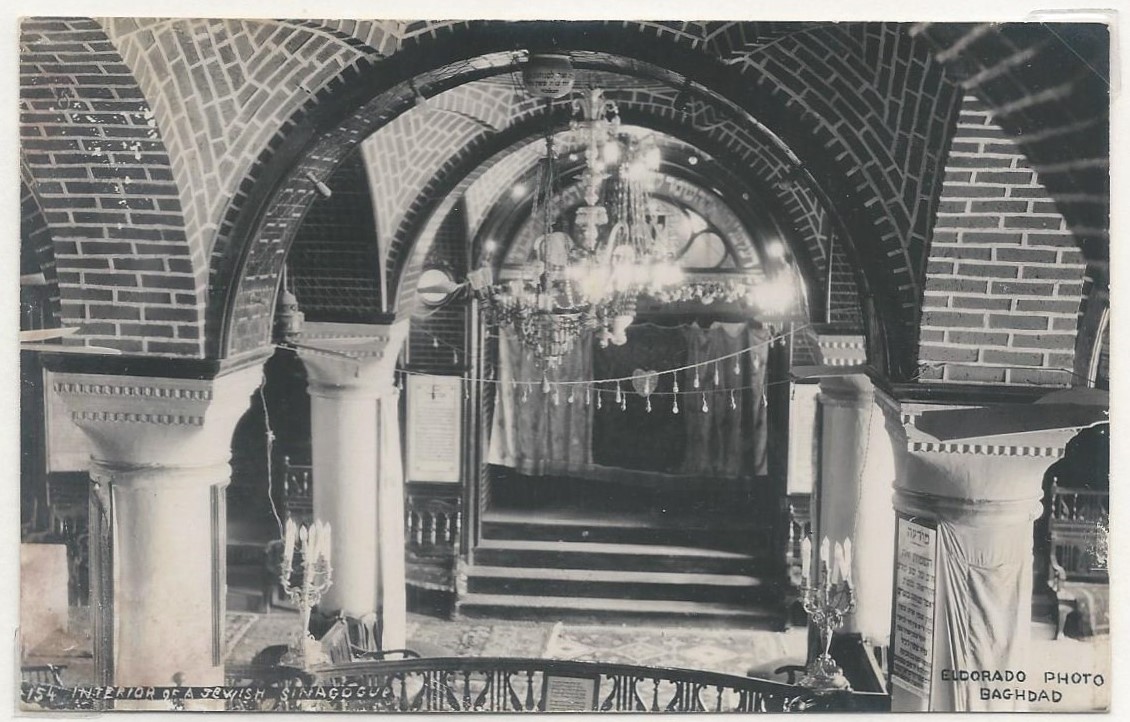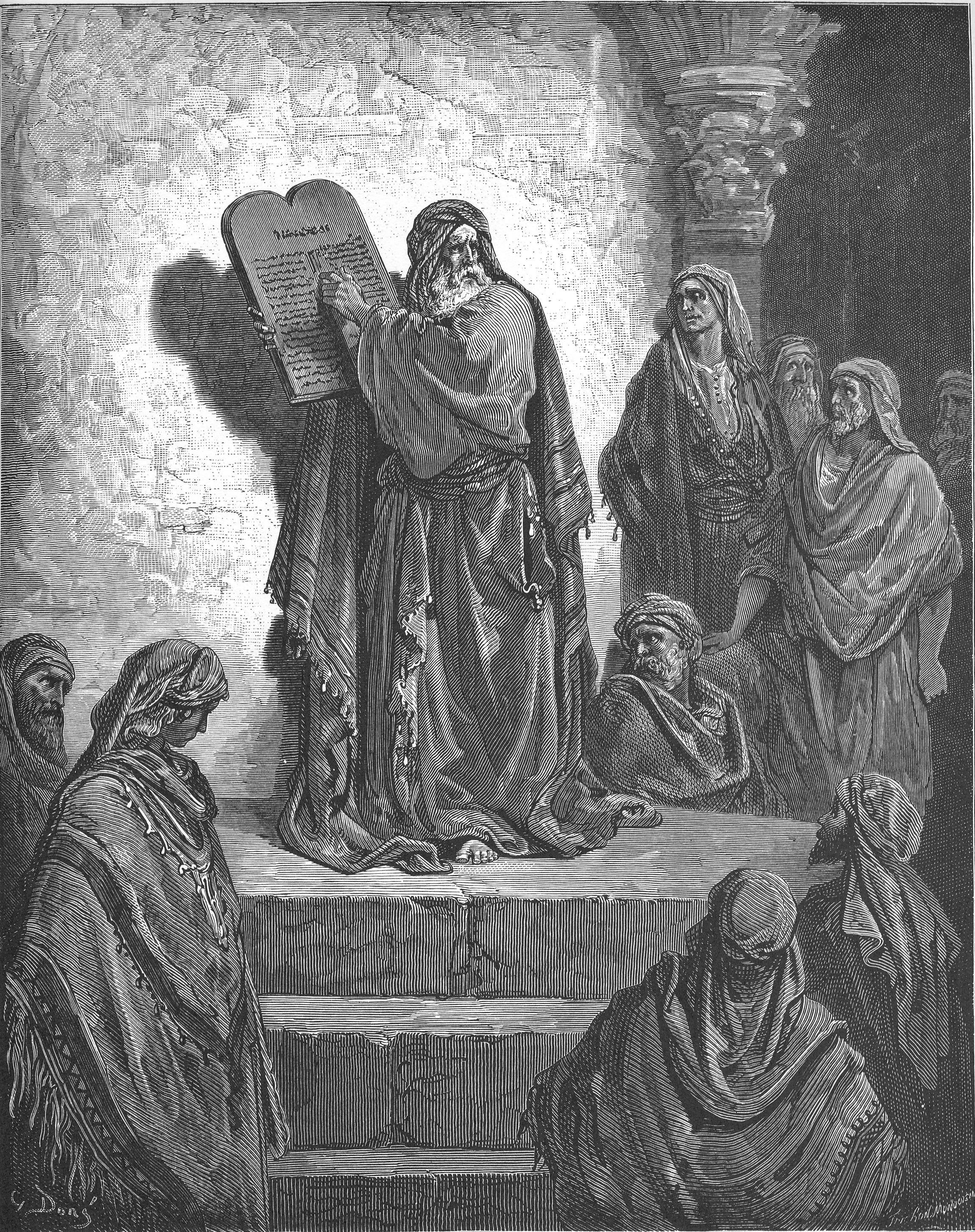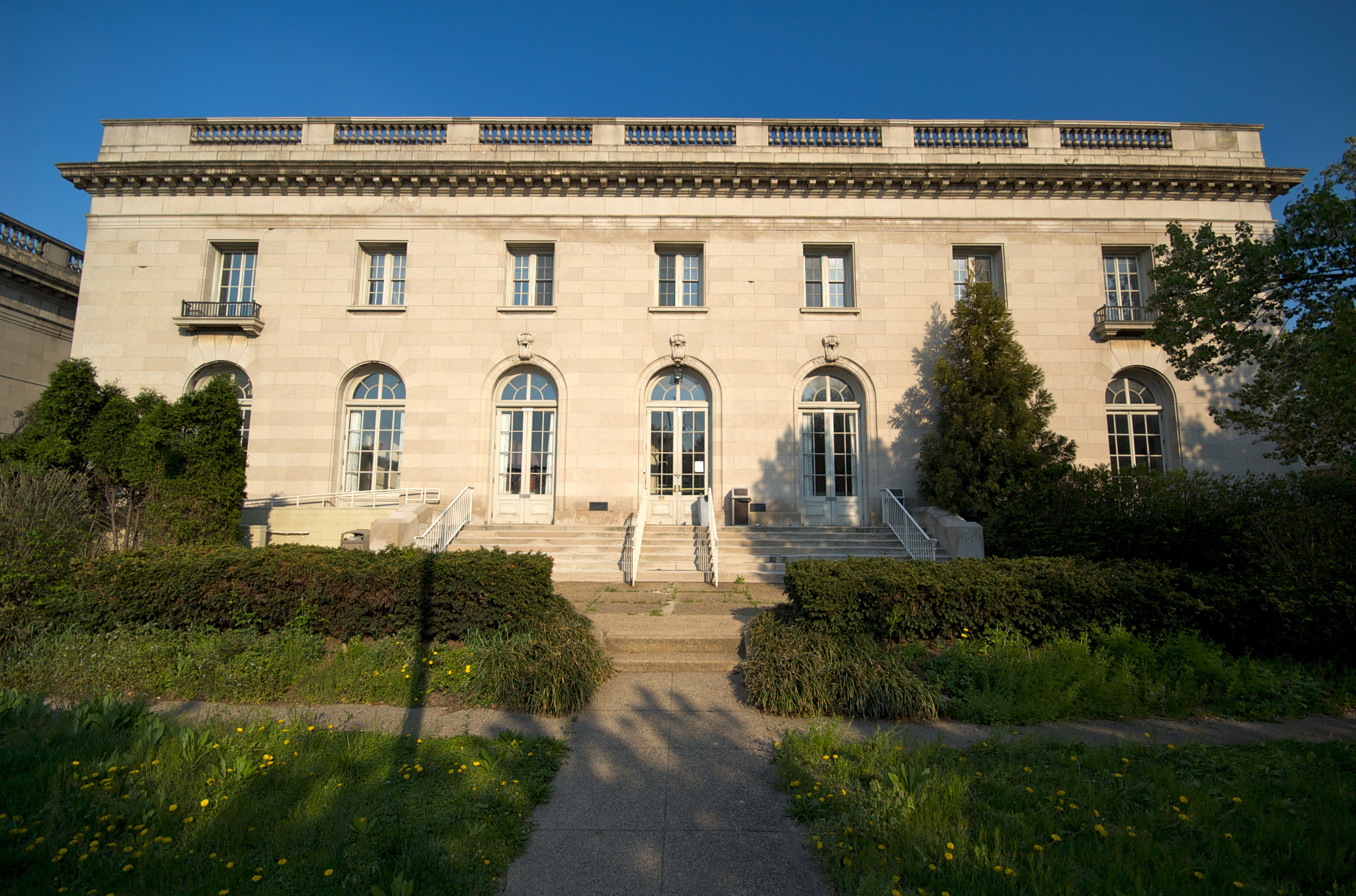|
Menahem Saleh Daniel
Menahem Saleh Daniel (1846-1940) was an Iraqi Jewish businessman, landowner, philanthropist and politician who served as Senate of Iraq, Senate in the Kingdom of Iraq and Deputy for Baghdad to the Chamber of Deputies (Ottoman Empire), Ottoman Chamber of Deputies. Biography Menahem Saleh Daniel was born on 1 March 1846 in Baghdad, to Iraqi Jewish parents. He studied in the schools of Baghdad before moving to Europe to study science. He was elected on behalf of Baghdad as a representative in the Ottoman Chamber of Deputies in 1877. He became famous in commercial and economic circles and was known for his commercial relations with the country’s notables. Daniel was appointed as a member of the first board of directors of the Baghdad Brigade, which was founded by the governor, Midhat Pasha, Medhat Pasha. After the establishment of the monarchy in Iraq, he became a member of the Senate of Iraq in 1925, representing the Mosaic Jewish community in Iraq. His son Ezra Saleh Daniel (1874-1 ... [...More Info...] [...Related Items...] OR: [Wikipedia] [Google] [Baidu] |
Senate Of Iraq
The Senate of Iraq (''Majlis al-A`yan'') was the unelected upper house of the bicameral parliament established by the Mandatory Iraq's 1925 constitution. There were around twenty Senators, appointed for eight years by the King of Iraq. The Senate remained in existence until the 1958 revolution. Presidents of the Senate Members Members of the Iraqi Senate included: * Menahem Saleh Daniel. Appointed 1925, representing Iraqi Jews. Remained member until 1932, when he was succeeded by his son. * Jamil Sidqi al-Zahawi. Appointed 1925, remained member until 1929. * Mawlud Mukhlis. Appointed 1925. Appointed vice-president of the Senate in 1936, though resigned in 1937 when he was elected Baghdad deputy to Parliament. He later returned to the Senate. * Muhammad al-Sadr. Appointed 1925, remaining until his death in 1956. President of the Senate from 1929 until 1944, with the exception of 1937. * Yousef VI Emmanuel II Thomas. Appointed 1925, representing the Chaldean Catholic Church. R ... [...More Info...] [...Related Items...] OR: [Wikipedia] [Google] [Baidu] |
Midhat Pasha
Ahmed Şefik Midhat Pasha ( ota , احمد شفيق مدحت پاشا, 18 October 1822 – 26 April 1883) was an Ottoman democrat, kingmaker and one of the leading statesmen during the late Tanzimat period. He is most famous for leading the Ottoman constitutional movement of 1876 and introducing the First Constitutional Era, but was also a leading figure of reform in the educational and provincial administrations. He was part of a governing elite which recognized the crisis the Empire was in and considered reform to be a dire need. Midhat Pasha is described as a person with a liberal attitude and is often considered one of the founders of the Ottoman Parliament. He was described by historian Caroline Finkel as "a true representative of Tanzimat optimism, who believed that separatist tendencies could be best countered by demonstrating the benefits of good government." The Midhat Pasha Souq in Damascus still bears his name. Early life Midhat Pasha was born in Istanbul in the ... [...More Info...] [...Related Items...] OR: [Wikipedia] [Google] [Baidu] |
People From Baghdad
A person ( : people) is a being that has certain capacities or attributes such as reason, morality, consciousness or self-consciousness, and being a part of a culturally established form of social relations such as kinship, ownership of property, or legal responsibility. The defining features of personhood and, consequently, what makes a person count as a person, differ widely among cultures and contexts. In addition to the question of personhood, of what makes a being count as a person to begin with, there are further questions about personal identity and self: both about what makes any particular person that particular person instead of another, and about what makes a person at one time the same person as they were or will be at another time despite any intervening changes. The plural form "people" is often used to refer to an entire nation or ethnic group (as in "a people"), and this was the original meaning of the word; it subsequently acquired its use as a plural form of per ... [...More Info...] [...Related Items...] OR: [Wikipedia] [Google] [Baidu] |
Iraqi Jews
The history of the Jews in Iraq ( he, יְהוּדִים בָּבְלִים, ', ; ar, اليهود العراقيون, ) is documented from the time of the Babylonian captivity c. 586 BC. Iraqi Jews constitute one of the world's oldest and most historically significant Jewish communities. The Jewish community of what is termed in Jewish sources "Babylon" or "Babylonia" included Ezra the scribe, whose return to Judea in the late 6th century BCE is associated with significant changes in Jewish ritual observance and the rebuilding of the Temple in Jerusalem. The Babylonian Talmud was compiled in "Babylonia", identified with modern Iraq. From the biblical Babylonian period to the rise of the Islamic caliphate, the Jewish community of "Babylon" thrived as the center of Jewish learning. The Mongol invasion and Islamic discrimination in the Middle Ages led to its decline. Under the Ottoman Empire, the Jews of Iraq fared better. The community established modern schools in the second ... [...More Info...] [...Related Items...] OR: [Wikipedia] [Google] [Baidu] |
1940 Deaths
Year 194 ( CXCIV) was a common year starting on Tuesday (link will display the full calendar) of the Julian calendar. At the time, it was known as the Year of the Consulship of Septimius and Septimius (or, less frequently, year 947 ''Ab urbe condita''). The denomination 194 for this year has been used since the early medieval period, when the Anno Domini calendar era became the prevalent method in Europe for naming years. Events By place Roman Empire * Emperor Septimius Severus and Decimus Clodius Septimius Albinus Caesar become Roman Consuls. * Battle of Issus: Septimius Severus marches with his army (12 legions) to Cilicia, and defeats Pescennius Niger, Roman governor of Syria. Pescennius retreats to Antioch, and is executed by Severus' troops. * Septimius Severus besieges Byzantium (194–196); the city walls suffer extensive damage. Asia * Battle of Yan Province: Warlords Cao Cao and Lü Bu fight for control over Yan Province; the battle lasts for over 100 ... [...More Info...] [...Related Items...] OR: [Wikipedia] [Google] [Baidu] |
1846 Births
Events January–March * January 5 – The United States House of Representatives votes to stop sharing the Oregon Country with the United Kingdom. * January 13 – The Milan–Venice railway's bridge, over the Venetian Lagoon between Mestre and Venice in Italy, opens, the world's longest since 1151. * February 4 – Many Mormons begin their migration west from Nauvoo, Illinois, to the Great Salt Lake, led by Brigham Young. * February 10 – First Anglo-Sikh War: Battle of Sobraon – British forces defeat the Sikhs. * February 18 – The Galician slaughter, a peasant revolt, begins. * February 19 – United States president James K. Polk's annexation of the Republic of Texas is finalized by Texas president Anson Jones in a formal ceremony of transfer of sovereignty. The newly formed Texas state government is officially installed in Austin. * February 20– 29 – Kraków uprising: Galician slaughter – Polish nationalists stage an uprising in the Free City ... [...More Info...] [...Related Items...] OR: [Wikipedia] [Google] [Baidu] |
Sassoon Eskell
Sir Sassoon Eskell, Order of the British Empire, KBE (17 March 1860 – 31 August 1932) was an Iraqi statesman and financier. Also known as Sassoon Effendi (from Turkish Efendi, a title meaning Lord), he was regarded in Iraq as the Father of Parliament. Sir Sassoon (Arabic: ساسون حسقيل or ساسون حزقيال) was the first Ministry of Finance (Iraq), Minister of Finance in the Kingdom and a permanent Member of Parliament until his death. Along with Gertrude Bell and T. E. Lawrence, he was instrumental in the creation and the establishment of the Kingdom of Iraq post Ottoman Empire, Ottoman rule, and he founded the nascent Iraqi government’s laws and financial structure. He was knighted by George V of the United Kingdom, King George V in 1923. King Faisal I conferred on him the Civil Rafidain Medal Grade II, the Shahinshah awarded him the Order of the Lion and the Sun, Shir-o-khorshi medal and the Ottoman Empire decorated him with the Al-Moutamayez Medal. Early ... [...More Info...] [...Related Items...] OR: [Wikipedia] [Google] [Baidu] |
Ezra Saleh Daniel
Ezra (; he, עֶזְרָא, '; fl. 480–440 BCE), also called Ezra the Scribe (, ') and Ezra the Priest in the Book of Ezra, was a Jewish scribe (''sofer'') and priest (''kohen''). In Greco-Latin Ezra is called Esdras ( grc-gre, Ἔσδρας). According to the Hebrew Bible he was a descendant of Sraya, the last High Priest to serve in the First Temple, and a close relative of Joshua, the first High Priest of the Second Temple. He returned from Babylonian exile and reintroduced the Torah in Jerusalem. According to 1 Esdras, a Greek translation of the Book of Ezra still in use in Eastern Orthodoxy, he was also a High Priest. Rabbinic tradition holds that he was an ordinary member of the priesthood. Several traditions have developed over his place of burial. One tradition says that he is buried in al-Uzayr near Basra (Iraq), while another tradition alleges that he is buried in Tadif near Aleppo, in northern Syria. His name may be an abbreviation of ', "Yah helps". In the Gre ... [...More Info...] [...Related Items...] OR: [Wikipedia] [Google] [Baidu] |
Katz Center For Advanced Judaic Studies
The Herbert D. Katz Center for Advanced Judaic Studies at the University of Pennsylvania—commonly called the Katz Center—is a postdoctoral research center devoted to the study of Jewish history and civilization. History The Katz Center is the continuation of two pioneering institutions devoted to advanced research: Dropsie College for Hebrew and Cognate Learning and the Annenberg Research Institute. Dropsie College was the first accredited doctoral program in Judaic studies in the world. The Annenberg Research Institute was a center for advanced study in Judaism, Christianity, and Islam founded in 1986 with staff and collections carried over from Dropsie College. The founding director of the Katz Center was David B. Ruderman. The current Ella Darivoff Director is Steven Weitzman. The Katz Center was established in 1993 as a part of the School of Arts and Sciences at the University of Pennsylvania. It was first named the Center for Judaic Studies (CJS); later, the Center f ... [...More Info...] [...Related Items...] OR: [Wikipedia] [Google] [Baidu] |
إبراهيم عبد الغني الدروبي
Abraham, ; ar, , , name=, group= (originally Abram) is the common Hebrew patriarch of the Abrahamic religions, including Judaism, Christianity, and Islam. In Judaism, he is the founding father of the special relationship between the Jews and God; in Christianity, he is the spiritual progenitor of all believers, whether Jewish or non-Jewish; and in Islam, he is a link in the chain of Islamic prophets that begins with Adam (see Adam in Islam) and culminates in Muhammad. His life, told in the narrative of the Book of Genesis, revolves around the themes of posterity and land. Abraham is called by God to leave the house of his father Terah and settle in the land of Canaan, which God now promises to Abraham and his progeny. This promise is subsequently inherited by Isaac, Abraham's son by his wife Sarah, while Isaac's half-brother Ishmael is also promised that he will be the founder of a great nation. Abraham purchases a tomb (the Cave of the Patriarchs) at Hebron to be Sarah's ... [...More Info...] [...Related Items...] OR: [Wikipedia] [Google] [Baidu] |
Iraqis
Iraqis ( ar, العراقيون, ku, گهلی عیراق, gelê Iraqê) are people who originate from the country of Iraq. Iraq consists largely of most of ancient Mesopotamia, the native land of the indigenous Sumerian, Akkadian, Assyrian, and Babylonian civilizations, which was subsequently conquered, invaded and ruled by foreigners for centuries after the fall of the indigenous Mesopotamian empires. As a direct consequence of this long history, the contemporary Iraqi population comprises a significant number of different ethnicities. However, recent studies indicate that the different ethno-religious groups of Iraq (Mesopotamia) share significant similarities in genetics, likely due to centuries of assimilation between invading populations and the indigenous ethnic groups. Iraqi Arabs are the largest ethnic group in Iraq, while Kurds are the largest ethnic minority, Turkmens are the third largest ethnic group, while other ethnic groups include Yazidis, indigenous Assyria ... [...More Info...] [...Related Items...] OR: [Wikipedia] [Google] [Baidu] |

_1938.jpg)




.jpg)